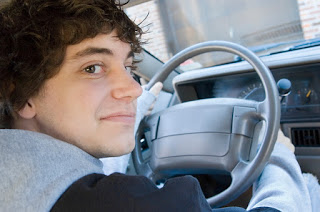
Parents Really Can Influence Their Teen’s Driving Behavior
December 11, 2006
Did you know one if five tens drink and drive, or that one in eight admit to smoking pot and driving? Considering that auto accidents are the number one cause of teenage death, it really shouldn’t come as a surprise that teens are indeed engaging in risky behavior while driving, but the actual numbers shocking.
These are two small statistics released by a recent study by Liberty Mutual and SADD, or Students Against Destructive Decisions. The seventh annual Teens Today study shows that while teens are engaging in behavior that leaves them at risk for fatal accidents, parents have the ability to greatly reduce the occurrence of these behaviors in their teens.
According to the study, teens report that they are less likely to drive under the influence of drugs or alcohol if they have parents who set driving expectations and give clear consequences for breaking those rules that are set. Liberty Mutual president, Paul Condrin, points out that “… parents need to know the laws and teen-driving rules of their state, set clear expectations with their teens… and establish and enforce those consequences should those laws be broken or expectations not met.”
It’s good news that the role of parents in their teen’s life, and driving activities, play a large role in whether they make destructive choices that may endanger their lives and the lives of others. Reducing fatal car accidents among teenagers – the number one cause of teenage death – is the primary goal of reducing risky behavior such as drinking and driving, talking on the phone or eating while driving, and having multiple passengers that can be distracting to the driver.
What can a parent do? Some tips offered by Liberty Mutual and SADD include knowing the laws in your state; educating your teen about driving, preferably before they reach the legal driving age; continue monitoring your teen after their receive their license; and set clear rules and enforce them. Teens whose parents establish clear consequences are shown to be less likely to speed, drive with three or more passengers in a car, or talk on a cell phone while driving.
The chairman and CEO of SADD, Stephen Wallace, said it best: “Perhaps most important is to set a good example for young drivers and to reinforce their good driving habits by praising what they are doing right behind the wheel.”
